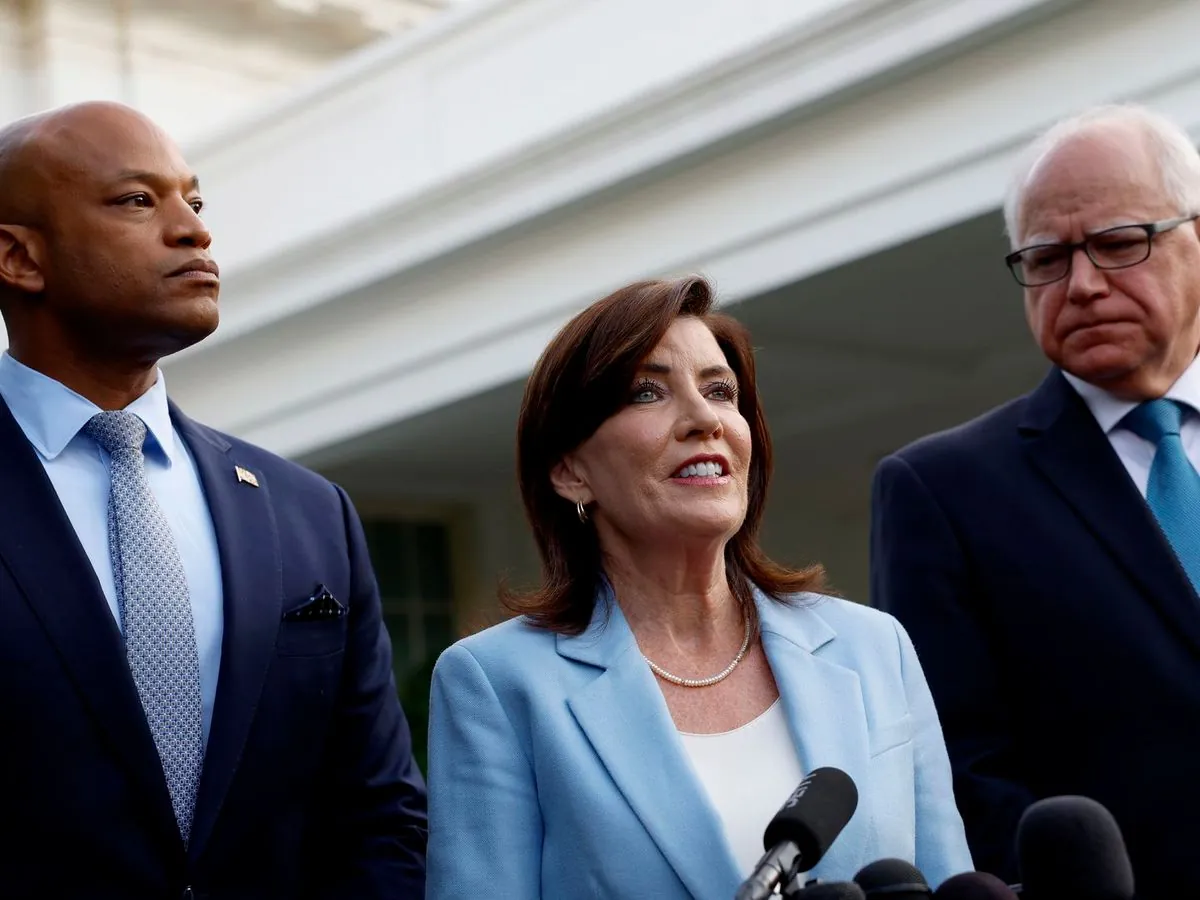In a striking display of political foresight, Democratic-led states across the United States are actively preparing for the possibility of Donald Trump's return to the White House. This preemptive strategy, dubbed "Trump-proofing," encompasses a wide range of policy areas that these states fear could be targeted in another Trump presidency.
The approach marks a significant contrast to the 2016 election, when Trump's victory caught many Democratic officials off guard. Now, drawing on their experiences from Trump's first term, these states are developing a three-pronged defense strategy centered on executive actions, legislative measures, and legal preparations.
One of the most visible examples of this strategy is the stockpiling of abortion pills. Jay Inslee, the governor of Washington state, has secured 30,000 doses of mifepristone, while Maura Healey of Massachusetts has preserved 15,000 pills. This action reflects concerns about potential federal restrictions on abortion access, a topic that has been at the forefront of political debates since the FDA approved mifepristone for medical abortions in 2000.
In California, Gavin Newsom has been particularly active in securing the state's climate agenda. Leveraging California's status as the world's fifth-largest economy, Newsom has brokered agreements with major automakers to comply with state emissions standards, regardless of federal actions. This move is reminiscent of California's long-standing role in environmental policy, dating back to the establishment of the Environmental Protection Agency in 1970.
Colorado is taking steps to protect LGBTQ+ rights, with state legislators pushing for a constitutional amendment to secure same-sex marriage. This action comes in response to concerns about potential challenges to the landmark 2015 Obergefell v. Hodges Supreme Court decision, which legalized same-sex marriage nationwide.
State attorneys general are also gearing up for potential legal battles. Rob Bonta, California's Attorney General, stated that his office is reviewing Trump's proposed second-term agenda and preparing for possible lawsuits in areas such as environmental protection, immigration, and civil rights. This strategy builds on the experience gained during Trump's first term, when Democratic states filed over 150 lawsuits against his administration.
However, experts caution that the effectiveness of these state-level resistance efforts may be limited by the conservative shift in federal courts, including the Supreme Court. The appointment of conservative justices during Trump's first term has altered the legal landscape, potentially making it more challenging for states to successfully challenge federal policies.
"This isn't a one-way ratchet. They're both upping their game."
The current political climate reflects the long-standing tension between state and federal powers, a cornerstone of the U.S. federal system established by the Constitution. The 10th Amendment, which reserves powers not delegated to the federal government to the states, continues to be a focal point in these policy disputes.
As the November 2024 election approaches, Democratic states are demonstrating a level of preparedness unseen in previous election cycles. While projecting confidence in their nominee, they are simultaneously crafting a robust defense strategy, drawing on lessons learned from Trump's first term and the evolving political landscape.
This proactive approach by blue states underscores the deep political divisions in the country and highlights the ongoing struggle between state and federal authority. As both sides refine their strategies, the coming months are likely to see continued efforts by Democratic-led states to insulate their policy priorities from potential federal intervention.
